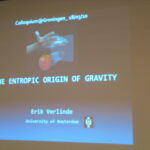Does God Change His Mind? Exploring Divine Omniscience and Perfection
Introduction: Can God Change His Mind?
One of the most intriguing questions people often ask is whether God, being omniscient, can change His mind. This question touches upon profound theological ideas about God’s nature, including His knowledge, perfection, and relationship with time. In this article, we will explore the idea of divine omniscience, discuss whether it is possible for God to change His mind, and examine relevant biblical stories that appear to suggest God does change His decisions.
Understanding Divine Omniscience
Omniscience refers to the ability to know everything, including all past, present, and future events. If God is omniscient, He not only knows what will happen but also knows every action He will take. In this context, the idea of God changing His mind presents a challenge. If God knows everything, including all future actions and decisions, then what could cause Him to change His mind? For God to change His mind, He would need to acquire new information or insight that He did not have before, which would imply ignorance—something contrary to the idea of a perfect, all-knowing being.
Is Changing One’s Mind Rooted in Ignorance?
When humans change their minds, it is usually because they acquire new knowledge or reconsider their decisions based on different circumstances. For example, we might decide to take a different route home after hearing about traffic. This change implies that we were previously unaware of certain information. However, God, being omniscient, already possesses all possible knowledge. Therefore, He has no need to change His mind because He never lacks information in the first place. Any suggestion that God changes His mind would imply that He is capable of error or ignorance—ideas that contradict the concept of a perfect being.
Is Changing One’s Mind a Mark of Imperfection?
Some might argue that changing one’s mind can be seen as a sign of progress or improvement. For finite creatures like humans, making decisions, learning from mistakes, and changing our minds are part of growing and becoming better individuals. But when it comes to God, who is already perfect, the need for change implies imperfection. If God is perfect, He does not need to progress or improve. Changing one’s mind, in God’s case, would imply that there was something wrong with His initial decision, which is impossible for a being that embodies ultimate perfection.
Why Did God Create the World?
A related question often arises about the purpose of creation. If God is perfect and unchanging, why would He create anything at all? Did the creation of the universe improve God or enhance His existence? The answer is no—creation does not benefit God. Instead, it is an act of grace meant to benefit creatures like us. God, in His infinite goodness, creates out of love, not because He needs anything from the universe. His perfection is independent of creation, and the act of creating does not change or improve Him.
Apparent Instances of God Changing His Mind in Scripture
The Bible contains several stories that, at first glance, seem to depict God changing His mind. For example, in the story of Jonah, God announces that He will destroy the city of Nineveh due to its wickedness, but after the people repent, God spares the city. Similarly, in Genesis, God appears to negotiate with Abraham over the fate of Sodom and Gomorrah, suggesting that He might change His decision based on Abraham’s pleas.
How do we interpret these passages? Are they evidence that God can change His mind after all? Many theologians argue that these stories should not be taken literally. Instead, they should be understood as part of a larger narrative strategy known as “anthropomorphism.” This is a literary device used to describe God in human terms, helping us relate to and understand His actions. In these stories, God is depicted as if He changes His mind, but these are narrative tools that illustrate His mercy and interaction with humanity rather than literal accounts of divine indecision.
The Literary Genre of Biblical Narratives
To fully understand these stories, we must consider the literary genre of the Bible. Many of the biblical accounts are written in the form of narratives—stories told from a human perspective. In these narratives, God is often described in ways that make His actions comprehensible to us. For example, there are passages where God is portrayed as “coming down” to see what is happening on Earth, or as not knowing certain events until they occur. However, these descriptions are not meant to be taken as philosophical or theological statements about God’s actual nature.
Just as the Bible describes God with human characteristics like hands, eyes, and even nostrils, it also describes Him as “changing His mind” to make His actions more relatable to readers. These stories are meant to convey the relational aspect of God’s interaction with humanity rather than a literal change in His eternal, unchanging nature.
God’s Relationship with Time
Another factor to consider is God’s relationship with time. Since God exists outside of time, His perspective on past, present, and future differs from ours. What may appear as a change of mind from our limited, temporal perspective could be part of God’s eternal and unchanging plan. God, who sees all of time simultaneously, does not need to revise His decisions as humans do.
For instance, when God spares Nineveh after its people repent, this action was always part of His plan. From a human standpoint, it seems as though God has changed His mind, but in reality, He always intended to act in response to their repentance. In this sense, God’s actions unfold within time, but His knowledge and will remain constant and unchanging.
Conclusion: God’s Immutable Nature
In conclusion, the idea of God changing His mind is inconsistent with His omniscient and perfect nature. Changing one’s mind is rooted in ignorance, which is something that cannot apply to a being who knows all things. While certain biblical stories may give the impression that God changes His mind, these are literary devices used to communicate deeper truths about God’s relationship with humanity. God’s perfection remains unaltered by the events of creation, and His actions are always rooted in His eternal knowledge and unchanging will.
If this topic resonates with you, I encourage you to explore further by watching this video link for a more in-depth discussion on the nature of God and whether He can change His mind.





